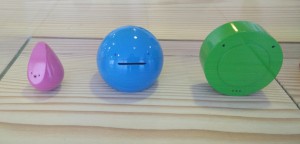The Future of Health Technology – Health Tech & You Awards
What does the future of health technology look like? AXA PPP’s Health Tech & You competition by the Design Museum has invited innovators to submit their products or early stage prototypes in six categories. Perhaps unsurprisingly, most of the entries were smartphone apps or devices. Your smartphone is on the road to becoming the hub not only for communication but also for monitoring your bodily functions and helping you stay healthy. Here is a list of the category highlights:
1. Keep me healthy
Do you suffer from stress or have trouble sleeping? There’s an app for that! The ‘Keep me healthy’ category showcased an app to make you fall asleep, an app to track your stress levels with exercises to reduce them and an app to measure your fitness and nutrition. The category winner was – you guessed it – another smartphone app. It plays music for 2 minutes to help time your twice-daily tooth brushing.
2. Manage my condition
Is the future of infection control in the workplace going to evolve beyond antibacterial soaps and hand-sanitizers? The winner of ‘Manage my condition’ category is a self-test kit for tracking early stage signs of respiratory disease. The kit is aimed at people with long-term respiratory disease but who is to say that this technology couldn’t one day be used in the workplace to make sure no one is bringing those nasty germs into the office or depot? The Eykos kit is meant for detecting bacterial infections, though, so it wouldn’t spot the cold or flu viruses.
Also in the ‘Manage my condition’ category: a smartphone glucometer for diabetics to measure and track their blood sugar levels via their phone; a wristband that detects sleep cycle changes that indicate relapses in bipolar disorder sufferers; and an app that shares your health information with your doctors.
3. Signs and symptoms
The entries in the ‘signs and symptoms’ category were quite interesting from an absence management perspective. A wireless blood pressure monitor that links with your smartphone via Bluetooth could be useful for employees with known cardiovascular conditions or as a regular checkpoint to flag up symptoms early on. Employers could also encourage absentees to use the online symptom checker at patient.com to make sure they are self-medicating in the right way or seeking medical advice where appropriate.
The category winner was ear and eye examination device that plug into a smartphone and can store the images in the Cloud for a specialist to review. The aim: to achieve quicker collaboration and patient data sharing between medical practitioners.
4. Most innovative provider
The category and the overall competition winner was babylon, which is best described as an online GP practice. You can access health information via your smartphone or make an appointment in seconds to see a doctor – via a video link! No more waiting weeks for appointments. Next, can we have this in the Occupational Health field as well, please!
5. Best R&D product
Some of the more obscure entries were found in the research and development category. These are prototypes of devices that haven’t yet made it to the market. The category winner was a wearable exercise gadget for women to help develop their pelvic floor muscles. This helps reduce very common physical problems that affect more than 1 in 3 women as they get older.
6. Pregnancy, birth and early years
A lot of innovation is taking place in the pregnancy and parenting sector. Women will find new gadgets to help detect when they are ovulating and apps to access information about their pregnancy or their child’s development. There was also a range of colourful smartphone devices for parents that include a baby monitor, motion detector, in-ear thermometer and a mobile ultrasound.

BleepBleeps parenting gadgets
The award winners and runners-up are on display in the Design Museum (until 26 April 2015). If you’d like an app for monitoring staff health via their absence statistics, we’ve got the solution for you: Engage.
